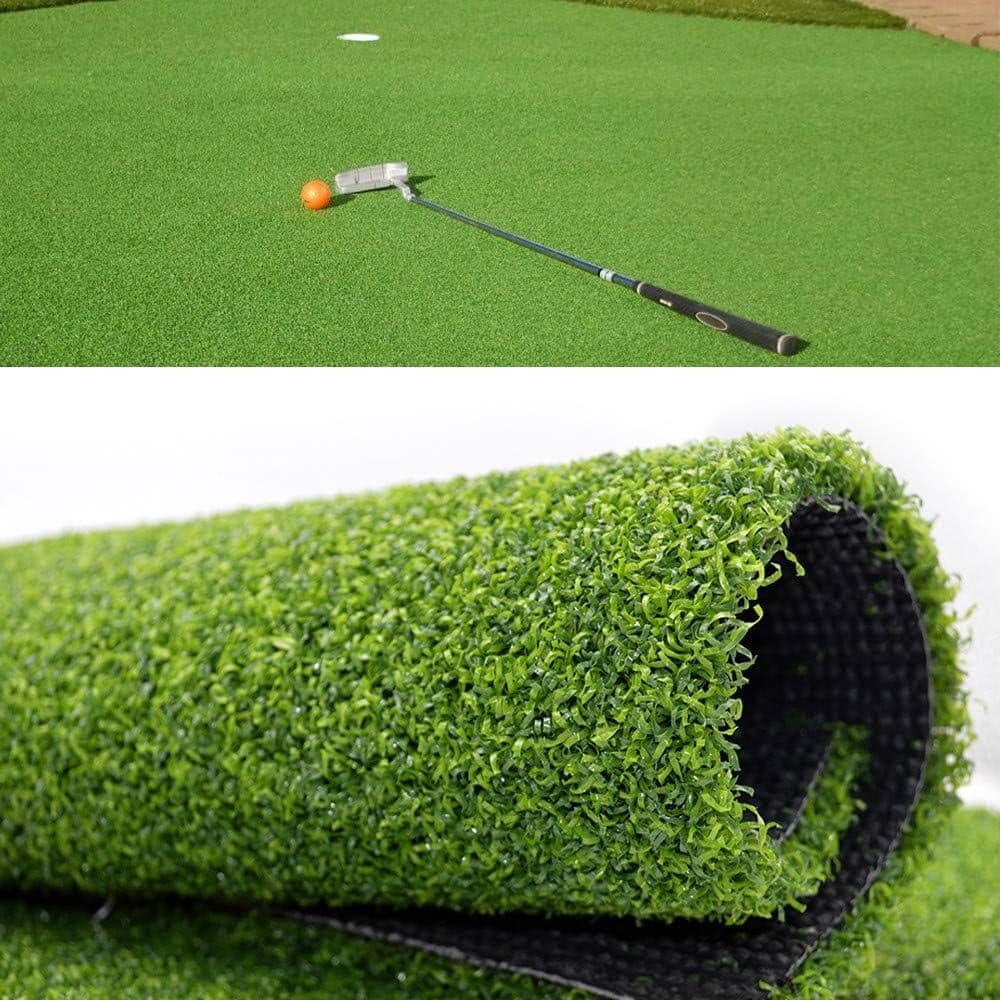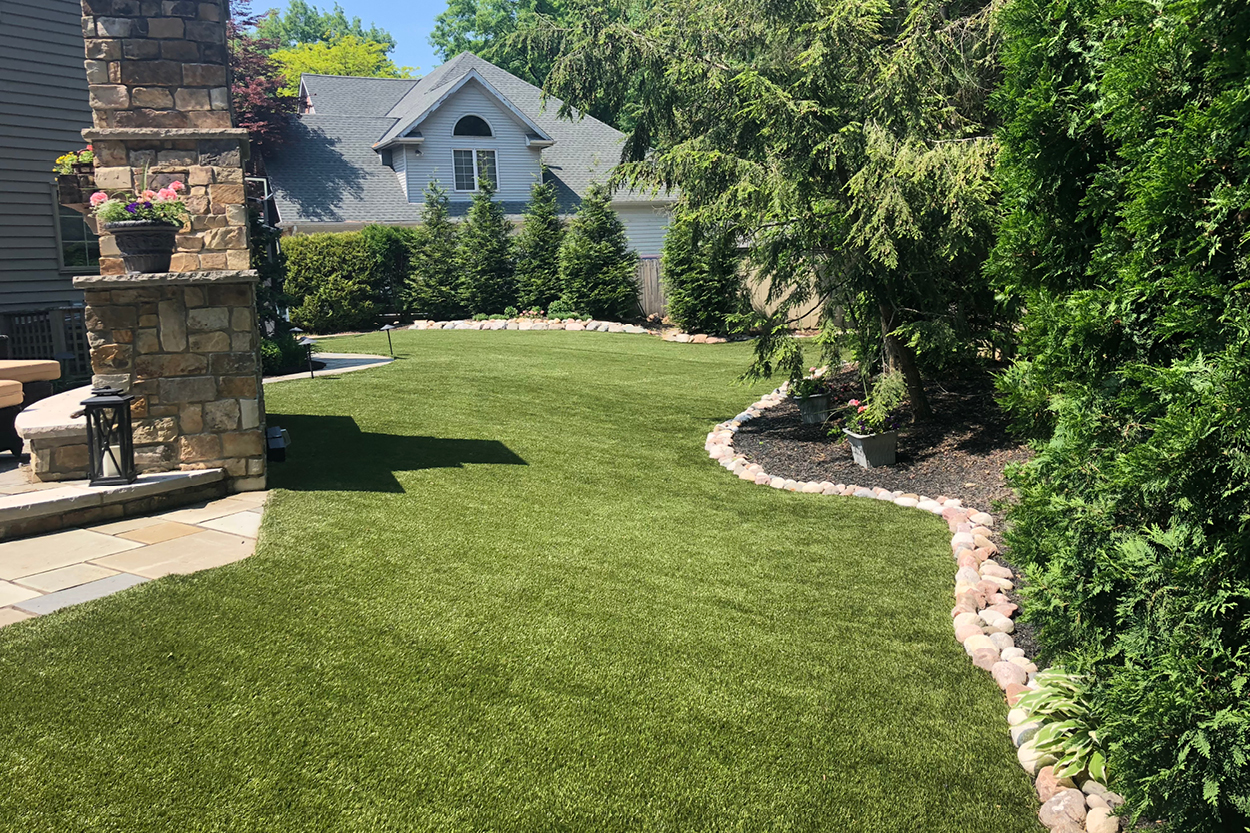Top Arizona Turf Providers Delivering a Lifelike Lawn Alternative
Top Arizona Turf Providers Delivering a Lifelike Lawn Alternative
Blog Article
Delve Into the Environmental Benefits of Opting for Synthetic Grass Solutions
The fostering of man-made lawn options presents a compelling possibility to deal with pressing ecological challenges. By significantly lowering water usage and reducing the application of harmful chemicals, these choices not only advertise lasting landscape design however also secure local communities. The lower carbon impact associated with decreased upkeep activities contributes to a more sustainable strategy to land monitoring. Nonetheless, the ramifications of these benefits expand past mere conservation initiatives, questioning regarding their long-lasting influence on habitat conservation and overall eco-friendly equilibrium. Discovering these dimensions exposes an intricate interaction worth taking into consideration.
Water Conservation Conveniences
One of one of the most significant advantages of synthetic grass is its capacity to save water. Traditional grass lawns require considerable watering, specifically in areas susceptible to dry spell or water limitations. On the other hand, synthetic grass does not need watering, significantly lowering the overall demand for water resources. This function is specifically beneficial in deserts where water scarcity is a pushing problem.
By removing the requirement for routine watering, synthetic grass adds to lasting landscape practices and assists minimize the environmental effect of too much water intake. Furthermore, the preservation of water includes the reduction of overflow, which can bring about soil disintegration and waterway air pollution.
In addition, the setup of synthetic grass allows home owners and districts to allocate water sources a lot more successfully, concentrating on crucial usages such as drinking water and agriculture. The change in the direction of synthetic grass not just promotes responsible water use however additionally straightens with wider environmental objectives targeted at protecting natural deposits.
As neighborhoods significantly focus on sustainability, the water preservation advantages of synthetic grass offer a compelling case for its adoption in business and domestic landscape design jobs.
Lowered Chemical Usage
The shift to synthetic grass dramatically lowers the reliance on chemical therapies typically made use of in all-natural turf maintenance. Typical turf administration usually includes the application of fertilizers, pesticides, and herbicides to advertise development and control bugs. These chemicals can position risks to human health and wellness, local wildlife, and the atmosphere, adding to soil and water contamination.
On the other hand, synthetic grass removes the requirement for these dangerous materials. As soon as installed, it requires very little maintenance, largely including routine cleaning and seldom infill replenishment. This decrease in chemical usage not just profits the prompt environment but additionally contributes to more comprehensive eco-friendly stability. By decreasing the launch of artificial compounds right into the ecosystem, synthetic grass advertises much healthier dirt and water systems.
Furthermore, the absence of chemical overflow connected with artificial turf installations assists secure neighborhood rivers from air pollution, supporting aquatic life and maintaining biodiversity. Phoenix turf companies. As areas progressively focus on sustainable practices, going with synthetic grass presents a feasible remedy that straightens with ecological conservation objectives. Via this shift, property owners can delight in lush green rooms without jeopardizing eco-friendly health and wellness, leading the way for an extra lasting future
Lower Carbon Footprint

In addition, the setup of synthetic grass can cause considerable water preservation. Natural grass require significant quantities of water for irrigation, which not only includes to the carbon footprint connected with water extraction and treatment however additionally stress neighborhood water resources. In comparison, fabricated turf requires marginal upkeep, requiring no watering, therefore considerably lowering water use and its connected energy prices.
Additionally, the durability of synthetic grass contributes to its decreased carbon influence. With a life-span of as much as 15 years or even more, the demand for frequent replacements is diminished, leading to much less waste and lower energy intake in production and throwing away traditional turf alternatives. In general, synthetic grass provides a sustainable alternative for eco mindful landscape design.
Environment Conservation
Habitat preservation is a crucial consideration in the discussion over landscaping options, particularly when comparing synthetic grass to natural yard. All-natural lawn lawns typically require extensive upkeep, consisting of the usage of pesticides, plant foods, and herbicides, which can detrimentally influence local ecological communities. These chemicals can seep into the dirt and waterways, harming native vegetation and fauna and disrupting neighborhood environments.
Artificial lawn removes the demand for hazardous chemicals, thus protecting close-by wildlife and preserving the stability of bordering communities. The setup check my blog of man-made grass can lead to the conversion of previous yard locations right into even more biodiverse landscapes, such as pollinator yards or indigenous plant locations, which can sustain regional wildlife.
Eventually, the change to synthetic grass not just preserves official website water and reduces maintenance initiatives yet likewise cultivates an extra unified connection between human activities and the natural environment, advertising environment conservation at the same time.
Long-Term Sustainability
Long-lasting sustainability is a vital aspect in examining the advantages of synthetic turf over traditional yard lawns. One of the most considerable advantages of fabricated turf is its sturdiness; it can last as much as 15-20 years with very little maintenance, whereas all-natural turf needs regular reseeding and replacement. This long life decreases the demand for consistent resources, such as water, plant foods, and pesticides, which are essential for preserving a healthy and balanced turf yard.
Furthermore, synthetic turf adds to a reduction in carbon discharges connected with yard treatment devices. Traditional yards typically call for gas-powered mowers, leaners, and blowers, all of which add to air contamination. Arizona artificial turf. In contrast, man-made turf removes the need for such devices, advertising a cleaner atmosphere
In addition, the production of fabricated turf significantly uses recycled products, boosting its sustainability here are the findings profile. As suppliers embrace environmentally friendly methods, the ecological impact of synthetic grass proceeds to diminish.

Final Thought
The fostering of synthetic grass options offers considerable ecological benefits, consisting of significant water conservation, lowered dependence on hazardous chemicals, and a lower carbon footprint. In addition, synthetic grass aids in protecting natural environments by minimizing land disturbance and advertising lasting sustainability via making use of long lasting materials. Collectively, these factors underscore the possibility of synthetic grass to contribute favorably to ecological health and wellness and supply a viable choice to traditional landscaping methods in an increasingly resource-conscious globe.
In contrast, man-made lawn does not need watering, substantially lowering the general demand for water resources. By lessening the launch of synthetic compounds right into the ecological community, man-made turf advertises much healthier soil and water systems.
Furthermore, the installment of man-made grass can result in substantial water preservation. In contrast, fabricated grass requires marginal maintenance, calling for no watering, thus significantly lowering water usage and its linked energy prices.

Report this page